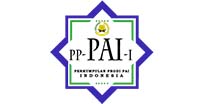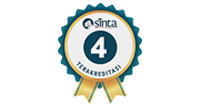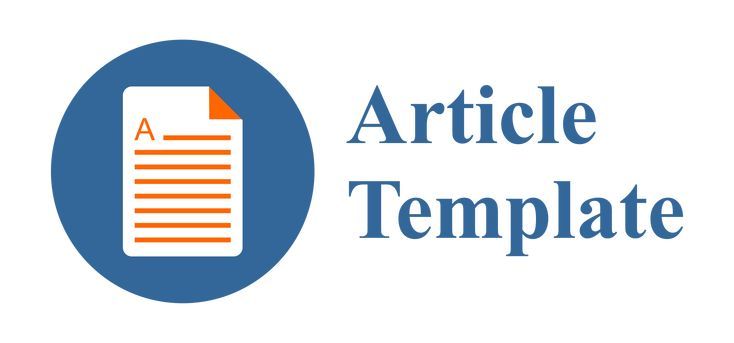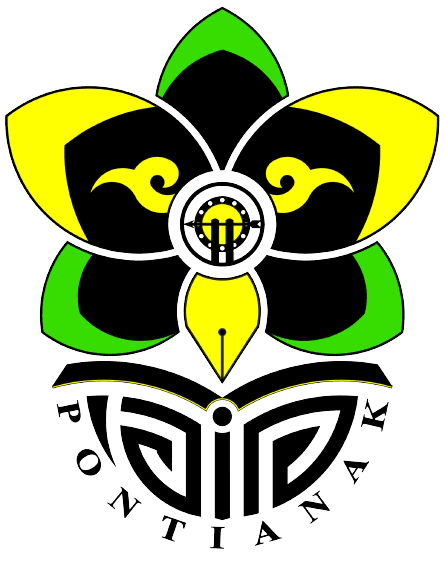Conceptual Study of Integrated Learning in the Application of PAI Education and Science in Madrasah Ibtidaiyah
DOI:
https://doi.org/10.24260/atturats.v19i2.5170Keywords:
Integrated Education, Its Application in PAI and Science Subjects,Abstract
Based on the results of a literature review covering the period from 2021 to 2024, it can be concluded that integrated learning in the subjects of Islamic Religious Education (PAI) and Science is an effective approach in creating a holistic, contextual, and meaningful educational process. This model plays an important role in connecting religious values with scientific concepts, so that learning does not only focus on cognitive aspects but also strengthens the affective and spiritual dimensions of students. Through the implementation of integrated learning, students are able to understand scientific knowledge rationally while internalizing moral and religious values in their daily lives. The findings indicate that this strategy is capable of developing students' critical, reflective, and analytical thinking skills, as well as enhancing learning motivation through the linkage of subject matter with real-life contexts. Furthermore, the integration between PAI and Science has proven effective in shaping students' character to become religiously observant, rational thinkers, and scientifically grounded individuals. Integrated learning provides more relevant and engaging learning experiences by connecting spiritual knowledge with empirical phenomena that are close to students' lives. Therefore, integrated learning can be considered an innovative model for improving the quality of education in madrasahs. This approach not only strengthens academic competence but also balances the development of spiritual, intellectual, and moral aspects harmoniously, thereby supporting the realization of comprehensive goals of Islamic education.
Berdasarkan hasil kajian literatur yang mencakup periode 2021–2024, dapat disimpulkan bahwa pembelajaran terpadu pada mata pelajaran Pendidikan Agama Islam (PAI) dan Sains merupakan pendekatan yang efektif dalam menciptakan proses pendidikan yang holistik, kontekstual, dan bermakna. Model ini berperan penting dalam menghubungkan nilai-nilai keagamaan dengan konsep-konsep ilmiah, sehingga pembelajaran tidak hanya berfokus pada aspek kognitif, tetapi juga memperkuat dimensi afektif dan spiritual peserta didik. Melalui penerapan pembelajaran terpadu, peserta didik mampu memahami pengetahuan ilmiah secara rasional sekaligus menginternalisasi nilai-nilai moral dan keagamaan dalam kehidupan sehari-hari.Temuan penelitian menunjukkan bahwa strategi ini mampu mengembangkan kemampuan berpikir kritis, reflektif, dan analitis peserta didik, serta meningkatkan motivasi belajar melalui keterkaitan antara materi pelajaran dan konteks kehidupan nyata. Selain itu, integrasi antara PAI dan Sains terbukti efektif dalam membentuk karakter peserta didik yang religius, berpikir rasional, dan memiliki landasan keilmuan yang kuat. Pembelajaran terpadu juga memberikan pengalaman belajar yang lebih relevan dan menarik karena mengaitkan pengetahuan spiritual dengan fenomena empiris yang dekat dengan kehidupan siswa.Dengan demikian, pembelajaran terpadu dapat dipandang sebagai model inovatif dalam meningkatkan mutu pendidikan di madrasah. Pendekatan ini tidak hanya memperkuat kompetensi akademik, tetapi juga menyeimbangkan perkembangan aspek spiritual, intelektual, dan moral secara harmonis, sehingga mendukung terwujudnya tujuan pendidikan Islam yang komprehensif.
Downloads
References
Abdi, G. C. P., Natalia, M. D., Nadine, A. S., Kurniawan, H., Kuntarto, E., & Sholeh, M. (2025). Development of an integrated learning model on the topic of Student Language Literacy. Journal of Indonesian Education, 5(1), 31–39. http://jurnaltarbiyah.uinsu.ac.id/index.php/eunoia/
Agus, M. A. Al. (2025). Implementation of Integrated Curriculum Management. Al Taraqqi, 2(2), 1–21.
Ahmad Faizal, Edy Soesanto, & Mohamad Aren Gracia Shandy. (2025). Building an intelligent generation with competent character and self-maturation as a college student. Consensus: Journal of Defense, Law and Communication Sciences, 2(1), 33–43. https://doi.org/10.62383/konsensus.v2i1.586
Amini, A., Nurmalasari, C., Marpaung, N. R., Yuhanda, P. N., Syahputri, T. A., & Risnanti, T. (2023). Integrated Learning System in the Implementation of Social Studies Learning in Elementary Schools. El-Mujtama: Journal of Community Service, 3(3), 686–694. https://doi.org/10.47467/elmujtama.v3i3.2911
Amris, F. K., & Desyandri, D. (2021). Integrated Thematic Learning uses the Problem Based Learning Model in Elementary Schools. Journal of Basicedu, 5(4), 2171–2180. https://doi.org/10.31004/basicedu.v5i4.1170
Anis Aprianti, & Siti Tiara Maulia. (2023). The Impact of Educational Curriculum Changes on Teachers and Students. Journal of English Education and Literature, 3(1), 181–190. https://doi.org/10.55606/jupensi.v3i1.1507
Aryaaulia. (2025). The Influence of the PjBL Model Using Mathematical Teaching Aids to Improve Learning Outcomes and Activity of Grade V Students. Pendas : Scientific Journal of Basic Education, 10 (September), 240–251. http://scioteca.caf.com/bitstream/handle/123456789/1091/RED2017-Eng-8ene.pdf?sequence=12&isAllowed=y%0A http://dx.doi.org/10.1016/j.regsciurbeco.2008.06.005%0A https://www.researchgate.net/publication/305320484_Sistem_ Pembetungan_Terpusat_Strategi_Melestari
Aziz, R., Febrianti, A., & Salmia. (2025). Implementation of the Integrated Thematic Learning Model in Elementary Schools. Saraweta : Journal of Education and Teacher Training, 3(01), 2986–1632.
Baher, M. K., Pahrudin, A., Jatmiko, A., & Koderi, K. (2024). Integrated Learning Approaches in Islamic Religious Education: A Case Study in Primary Schools. JIIP - Scientific Journal of Educational Sciences, 7(12), 13893–13900. https://doi.org/10.54371/jiip.v7i12.6423
Budhayanti, I. S., Wijayanti, C. H., & Aerospace, S. E. V. (2022). Instructional Analysis of Integrated Learning Based on Cultural Literacy in Mathematics and Indonesian Lessons. Journal of Pendas Horizon, 8(1), 70–81.
Eryani, E., Mustakimah, I., Octaviani, N., & Banyutresna, S. (2022). Fragmented Model Integrated Learning Simulation. Edu Happiness: Scientific Journal of Early Childhood Development, 1(2), 133–137. https://doi.org/10.62515/eduhappiness.v1i2.63
Febrian Afriadi, Muhammad Fatih Hidayah, & Gusmaneli. (2024). Collaborative Learning in Higher Education Journal of IHSAN Journal of Islamic Education, 2(3), 143–157. https://doi.org/10.61104/ihsan.v2i3.347
Gandasari Adriana, Seran Yunita Eliana, A. S. I. (2025). Optimizing Student Profile Strengthening Programs. Pkm ( Community Service), 08(02), 228–234.
Hafidhi, N. M., Supriyono, S., & Rahayuningsih, S. (2024). Elementary School Teachers' Perception of the Implementation of Integrated Learning in the Independent Curriculum. Journal of Learning Research and Innovation, 4(2), 740–750. https://doi.org/10.51574/jrip.v4i2.1473
Hafidhoh, N. (2020). Application of an Integrated Thematic Learning Model. At-Tahdzib Journal of Basic Education and Learning, 6(1), 1–10.
Hatima, Y., Fajrudin, L., Jatmiko, A. B., Jodiyariyan, R. A., Sultan, U., & Tirtayasa, A. (2025). Analysis of the Application of Webbed Type Integrated Learning Model in Improving Elementary School Student Learning Outcomes. Jpee, 4(1), 1–120. https://doi.org/10.46306/jpee.v4i1.115
Hernawan, A. H., & Resmini, N. (2017). Integrated Learning in Elementary School. In Integrated learning. http://repository.ut.ac.id/4039/1/PDGK4205-M1.pdf)
Hidayat, H. (2025). The Importance of Islamic Religious Education in Shaping the Character of the Young Generation. Indonesian Journal of Islamic Education, 1(1), 15–21. https://doi.org/10.63477/jupendia.v1i1.205
Ignasia, F. (2025). Pengaruh Pembelajaran Adaptif Berbasis Game dengan Personalisasi terhadap Hasil Belajar Peserta Didik dalam Konteks Keragaman Karakteristik The Effect of Game-based Adaptive Learning with Personalization on Learning Outcomes in Characteristic Diversity. Journal of Mathematics and Science Education, 13, 273–282.
Iskandar Sofyan, Putri Rachmadini Zaskia, Luhukay Zabrina Michelya, H. H. K. (2025). Analysis of the Concept of the Independent Curriculum in Education in Indonesia. Pedagogic : Journal of Elementary School Teacher Education, 1(1), 1–5. https://loddosinstitute.org/journal/index.php/Eruditio/article/view/120/101
Jumahir, Suma K. Saleh, & Farid Haluti. (2025). The Role of Islamic Religious Education in Shaping the Character of Responsibility in Adolescents in Madrasah Aliyah. Al-Ilmi Journal of Islamic Education, 8(1), 118–126. https://doi.org/10.32529/al-ilmi.v8i1.4053
Nasution, H. Z., Nurhasanah, N., Umilailah, S., & Tri Windi Oktara. (2025). Literature Studies: The Role of Educational Psychology in Overcoming Learning Difficulties. Journal of Educational Sciences, 1(1), 39–46. https://doi.org/10.63203/040918200
Norlita, D., Nageta, P. W., Faradhila, S. A., Aryanti, M. P., Fakhriyah, F., & Ismayam. A, E. A. (2023). Systematic Literature Review (Slr) : Character Education in Elementary School. JISPENDIORA Journal of Social Sciences of Education and Humanities, 2(1), 209–219. https://doi.org/10.56910/jispendiora.v2i1.743
Nuroniah, E., Rahmawati, M., Putri, N. A., & Aliyah, F. H. (2022). Application of the Nested Type Integrated Learning Method in Kober Bahari Mandiri Aged 3-4 Years. Edu Happiness: Scientific Journal of Early Childhood Development, 1(2), 138–143. https://doi.org/10.62515/eduhappiness.v1i2.60
Oktavia, Y. H., & Dixon, H. (2021). Implementation of Integrated Learning in Improving the Quality of Education: A Systematic Literature Review. Journal of Dassar Education Studies, 6(2), 154–158. https://journal.unismuh.ac.id/index.php/jkpd/article/view/5573
Olivia, G., Salsabila, S., & Ermiana, I. (2024). Implementation of the Fragmented Model in the Independent Curriculum in Class 2 in Mathematics Subjects in Elementary School Negeri 41 Cakranegara Implementation of the Fragmented Model in the Independent Curriculum in Class 2 in Mathematics Subjects in Primary School Negeri 4. Renjana Basic Education, 4(4).
Purwaningrum Devia, Farantika Dessy, S. M. A. (2025). Implementation of Character Education for Wise Adults. Journal of Religion, Social and Culture, 1(1), 1–11.
Putri Nursyafika, Rahayu Putri Meyza, Safika Eka, Zhafira Dwi Afisa, M. D. (2021). Thematic Learning in Dea Elementary School. Scientific Nusantara, 2(4), 167–186.
Ramadhan, D., Nurlaili, I., Pawestri Primastuti, K., Widyawati, R., Farida, V., & Muhtarom, T. (2025). Developing Active and Independent Character with Experiental Learning Method at SD IT Alam Nurul Islam. Peshum : Journal of Education, Social and Humanities, 4(2), 1672–1685. https://ulilalbabinstitute.co.id/index.php/Peshum/article/view/7195/5718
Rintara Anisa, Pitaloka Ayu Sastra Amanda Bunga, Handayani Yogi Mita, Ariyani R. F. (2025). Conceptual analysis of integrated learning at the elementary school level. Multidisciplinaryeducation, 1(1), 1–8.
Sasmita E, Fitria Y, & Erita Y. (2023). The use of webbed models for improving the quality of integrated thematic learning in elementary schools. Innovative: Journal Of Social Science Research, 3, 4737–4751.
Sastrianawati, Fitri Indriani, N. H. R. (2023). Integrated Learning. In Kompas Online Newspaper.
Sauri, A. S., Huda, H., Script, H., Education, D. K., Globalization, E., & Learning, D. (2022). Theory and Design of Educational Curriculum in Elementary-Junior High School in the Era of Globalization Educational Journal of Islamic Management (EJIM). 92–100.
Sita Acetylena, Emilda Fibyani Agustin, Sutan Faiz Amrillah, & Edy Setiawan. (2024). Development of Islamic Religious Education Curriculum in Improving the Character of New Students. Journal of IHSAN Journal of Islamic Education, 3(1), 424–429. https://doi.org/10.61104/ihsan.v3i1.870
Surahmi, Y. D., Fitriani, E., Pradita, A. A., & Ummah, S. A. (2022). Pedagogic Competence of Elementary School Teachers in Managing Integrated Learning in the 2013 Curriculum. Pendas Horizon, 8(1), 135–146.
Tasman, Hamami, K. A. H. (2023). The design of the development of the Islamic religious education curriculum is centered on PAI subjects. Paramurobi, 6, 27–43.
Utami, D. R., Pahrudin, A., Rahmi, S., Raden, U., Lampung, I., Uin, A.-R., & Banda, A. (2025). Curriculum Development Management and Integrated Learning Strategies to Enhance Education Quality in the Globalization Era. ARJI, 76. https://journal.nahnuinisiatif.com/index.php/ARJI/article/view
Vina Destiana, Lntan Putri Lestari, M Haris Hanafi, M Sofwan Ghalib, & Wismanto Wismanto. (2024). Human Nature (Islamic Education Philosophy Perspective). Journal of Islamic Religious Management and Education, 2(1), 70–87. https://doi.org/10.61132/jmpai.v2i1.61
Wahab, D. A. S., Ulya, N. M., & Susilawati, S. (2025). Application of Thematic Learning Principles of Theme Exploration, Learning Management, Evaluation, and Reaction. Al-Madrasah Journal of Education Madrasah Ibtidaiyah, 9(2), 959. https://doi.org/10.35931/am.v9i2.4253
Zaini, R., Harahap, R. A., Akmal, S.-R., & Serdang, D. (2025). Principles of Thematic Learning in Elementary School. Journal of Education and Religion, 2(4), 15–21.
Zakiah Rina, Arianti Desti, Dwi Ratna Tri, Istiqomah Siti, Tyas Cahyanengsih Apriliya, D. K. E. S. (2021). The Impact of the Use of Video Media in Integrated Thematic Learning in Elementary / MI. Tadzkirah: Journal of Ten Education, 10, 167–186.
Downloads
Published
How to Cite
Issue
Section
License
Copyright (c) 2025 Syifa Adilla Zahra, Agus Pahrudin, Agus Jatmiko, Coding Coding, Imam Syafe'i

This work is licensed under a Creative Commons Attribution-NonCommercial 4.0 International License.











